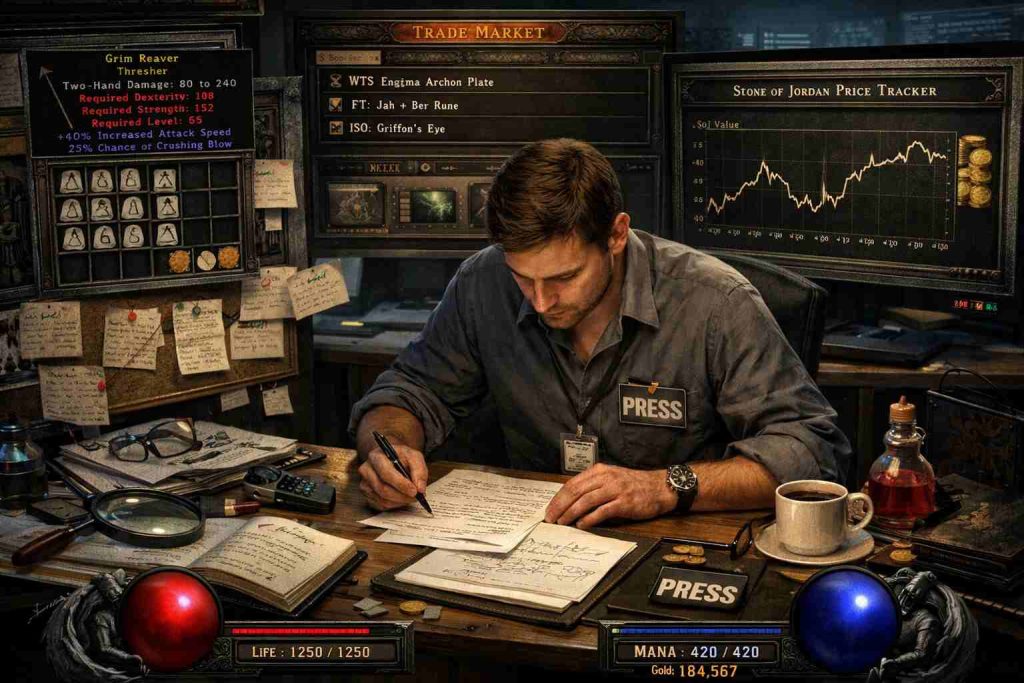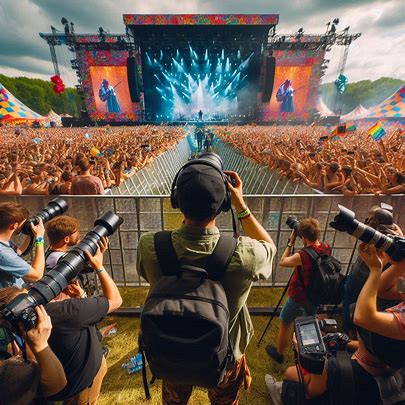More than half of global football fans now consume match content through digital platforms rather than traditional television, according to recent sports media reports. This shift reflects a wider transformation in how audiences experience the English Premier League, where instant updates, mobile viewing, and social interaction reshape the rhythm of sports coverage. Journalism, once built around next-day analysis and scheduled broadcasts, now operates in a constant live environment driven by speed and accessibility.
Digital platforms offering EPL Broadcasting (EPL중계) have expanded how matches reach viewers across borders. Fans no longer depend solely on licensed TV networks or newspaper recaps. Instead, streaming sites, live chats, and fan communities create parallel spaces where commentary unfolds minute by minute. Journalists increasingly compete with influencers, analysts on social media, and even supporters sharing tactical opinions in real time. The result is a media landscape where reporting blends with conversation rather than standing apart from it.
From Match Reports to Live Narratives

Traditional sports journalism followed a predictable cycle. Reporters attended matches, gathered quotes, verified statistics, and published structured reports hours later. Legendary football writers such as Henry Winter built reputations on detailed storytelling and careful post-match reflection. Readers expected depth, context, and editorial judgment.
Streaming culture has changed those expectations. Today’s audience often watches highlights seconds after a goal happens. Journalists now provide rolling updates, quick tactical explanations, and immediate reactions across multiple platforms. Live blogs and social feeds function as evolving articles rather than finished pieces. Speed matters, yet accuracy remains essential, creating new pressure for reporters balancing verification with immediacy.
This evolution encourages journalists to act more like hosts guiding a shared viewing experience. Commentary now includes fan polls, instant statistics, and interactive discussions. Coverage becomes less formal and more conversational, reflecting how audiences engage with football as a collective event rather than a one-way broadcast.
The Rise of Instant Highlight Culture
Short-form video has become one of the strongest influences on sports journalism. Platforms such as YouTube, TikTok, and X push bite-sized highlights that travel faster than traditional news articles. A stunning goal or controversial referee decision can reach millions before a reporter finishes writing a headline.
Editors increasingly design stories around moments that trend online. Analysts break down clips frame by frame, while data journalists add visual explanations within minutes. This approach helps attract younger audiences who prefer visual storytelling over long match summaries.
However, highlight-driven coverage can narrow focus. Tactical nuance, defensive organization, and long-term team development sometimes receive less attention because they lack viral appeal. Journalists must balance entertainment value with meaningful analysis to maintain credibility.
Unofficial Streaming and Media Rights Challenges
The growth of online streaming ecosystems introduces complicated questions about media rights and journalistic standards. Official broadcasters invest billions in league licensing, shaping how matches are filmed and distributed. Unofficial platforms, meanwhile, widen accessibility but often operate outside established agreements.
For journalists, this environment creates both opportunity and risk. Wider access means larger global audiences following matches simultaneously, increasing readership potential. Yet unclear licensing structures can weaken the economic model that funds professional reporting. Newsrooms rely heavily on broadcasting partnerships, advertising tied to live coverage, and exclusive access to clubs.
As EPL Broadcasting options expand online, reporters must adapt to audiences who may watch matches through fragmented sources. Coverage shifts toward analysis, storytelling, and investigative work that streaming platforms alone cannot provide. Journalism’s value increasingly lies in interpretation rather than simple delivery of match events.
Fan Participation and the New Media Conversation
Digital broadcasting has blurred the boundary between journalist and audience. Supporters now challenge opinions instantly, share alternative statistics, and create tactical breakdowns rivaling professional analysis. Fan podcasts and independent creators regularly influence football narratives.
This participatory culture forces journalists to become more transparent. Errors are quickly corrected by online communities, while strong analysis earns immediate recognition. Reporters engage directly with readers through comment sections and social media threads, building trust through dialogue rather than authority alone.
At the same time, constant interaction raises concerns about misinformation and emotional reactions shaping coverage. Responsible journalism requires maintaining editorial discipline even within fast-moving discussions.
EXPLORE MORE: The Online News Platform that Exemplifies Effective Sports Journalism
What the Future Holds for Sports Journalism
Football coverage continues to evolve alongside technology. Artificial intelligence tools assist with data analysis, while immersive viewing experiences promise deeper fan engagement. Journalists increasingly combine written reporting with video commentary, podcasts, and live digital hosting.
The challenge is preserving journalistic integrity while adapting to audience habits shaped by streaming culture. Accuracy, context, and ethical reporting remain essential foundations, even as formats change. Successful reporters embrace innovation without abandoning verification and balanced storytelling.
Ultimately, EPL Broadcasting represents more than a change in viewing habits. It signals a broader transformation in how football stories are created, shared, and understood. Sports journalism is no longer confined to stadium press boxes or printed columns. It lives within a global, interactive conversation where fans and journalists shape the narrative together, redefining the future of football media.



 Few homeowners realize that their floors may harbor more than dust and dirt. Beneath the clean surface of tile floors lies a hidden world teeming with microscopic life. Between those narrow grout lines, layers of bacteria, mold spores, and unseen residues build up over time, forming colonies that could compromise both your home’s beauty and your health.
Few homeowners realize that their floors may harbor more than dust and dirt. Beneath the clean surface of tile floors lies a hidden world teeming with microscopic life. Between those narrow grout lines, layers of bacteria, mold spores, and unseen residues build up over time, forming colonies that could compromise both your home’s beauty and your health.


 Large events like music festivals, sports championships, or political rallies draw thousands of people. They also attract journalists eager to capture every moment. Yet, without proper organization, chaos can disrupt their work. Fencing provides a simple yet effective solution. It creates designated media zones, ensuring journalists can report safely and efficiently while keeping the public secure.
Large events like music festivals, sports championships, or political rallies draw thousands of people. They also attract journalists eager to capture every moment. Yet, without proper organization, chaos can disrupt their work. Fencing provides a simple yet effective solution. It creates designated media zones, ensuring journalists can report safely and efficiently while keeping the public secure.
 Public education about many facets of appliance maintenance depends critically on journalism. Journalists guide homeowners toward wise decisions by offering advice on upkeep and troubleshooting as well as by stressing typical problems and fixes. News pieces, blog entries, and articles on appliance repair provide insightful analysis of industry trends, newest technologies, and repair methods.
Public education about many facets of appliance maintenance depends critically on journalism. Journalists guide homeowners toward wise decisions by offering advice on upkeep and troubleshooting as well as by stressing typical problems and fixes. News pieces, blog entries, and articles on appliance repair provide insightful analysis of industry trends, newest technologies, and repair methods. Webtoons can show visually striking evidence in an interesting and instructive manner. Incorporating maps, graphs, and other graphic components helps artists to support their arguments and set context. Investigative journalism may thus become more immersive and interesting, motivating readers to actively participate in the narrative process.
Webtoons can show visually striking evidence in an interesting and instructive manner. Incorporating maps, graphs, and other graphic components helps artists to support their arguments and set context. Investigative journalism may thus become more immersive and interesting, motivating readers to actively participate in the narrative process.








 Traveling by train is a unique and enjoyable way to explore new destinations, offering stunning views and an opportunity to connect with local people. Train travel allows you to relax, unwind, and take in the scenery while meeting other travelers and locals, sharing stories, and
Traveling by train is a unique and enjoyable way to explore new destinations, offering stunning views and an opportunity to connect with local people. Train travel allows you to relax, unwind, and take in the scenery while meeting other travelers and locals, sharing stories, and 






 In a job interview, you have to research the company and what kind of personalities they are after. The first step is to review the materials that the company has shared about itself. This will give you an overview of the culture, values, and work-life balance that they offer.
In a job interview, you have to research the company and what kind of personalities they are after. The first step is to review the materials that the company has shared about itself. This will give you an overview of the culture, values, and work-life balance that they offer.



